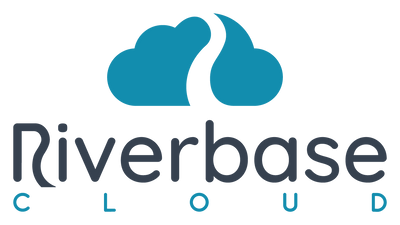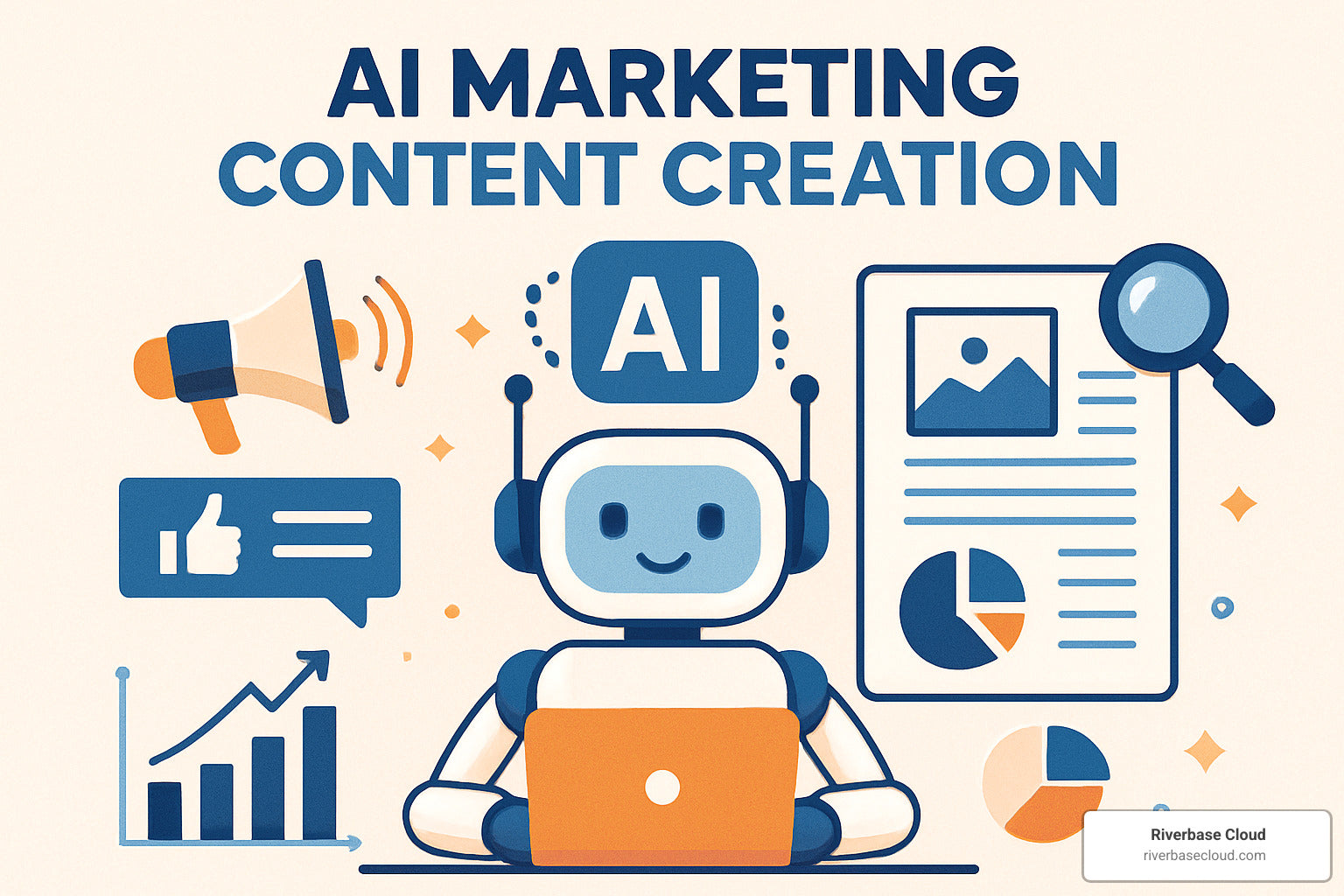The Revolution of AI in Marketing Content Creation
AI marketing content creation is changing how businesses produce and distribute content at scale. If you're looking to implement AI in your marketing workflow, here's what you need to know:
Quick Guide to AI Marketing Content Creation:
- What it is: Technology that uses machine learning to generate marketing copy, images, and videos
- Key benefits: 3-10x faster content production, cost reduction of 30-50%, and scalability across channels
- Best applications: Blog posts, social media content, email campaigns, ad copy, and product descriptions
- Implementation approach: Start with AI-assisted drafts, apply human editing, and scale gradually
More than 75% of marketers now use AI tools to some degree, with studies showing that AI-assisted teams can save hundreds of hours annually on content production while increasing traffic by up to 40%.
The traditional content creation process is riddled with bottlenecks - from writer's block to resource constraints. A typical 500-word blog post takes around 4 hours to complete manually, while outsourcing can cost upwards of $175 per article. AI tools are changing this equation dramatically, allowing businesses to create more content with fewer resources.
However, successful AI content creation isn't about replacing humans - it's about finding the sweet spot where technology amplifies human creativity. The most effective approach combines AI-generated drafts with human editing to ensure brand voice consistency, factual accuracy, and emotional resonance.
I'm Gary Gilkison, founder of Riverbase Cloud, where I've helped businesses implement AI marketing content creation strategies that blend automation with expert human oversight to drive measurable growth and efficiency in their content operations.
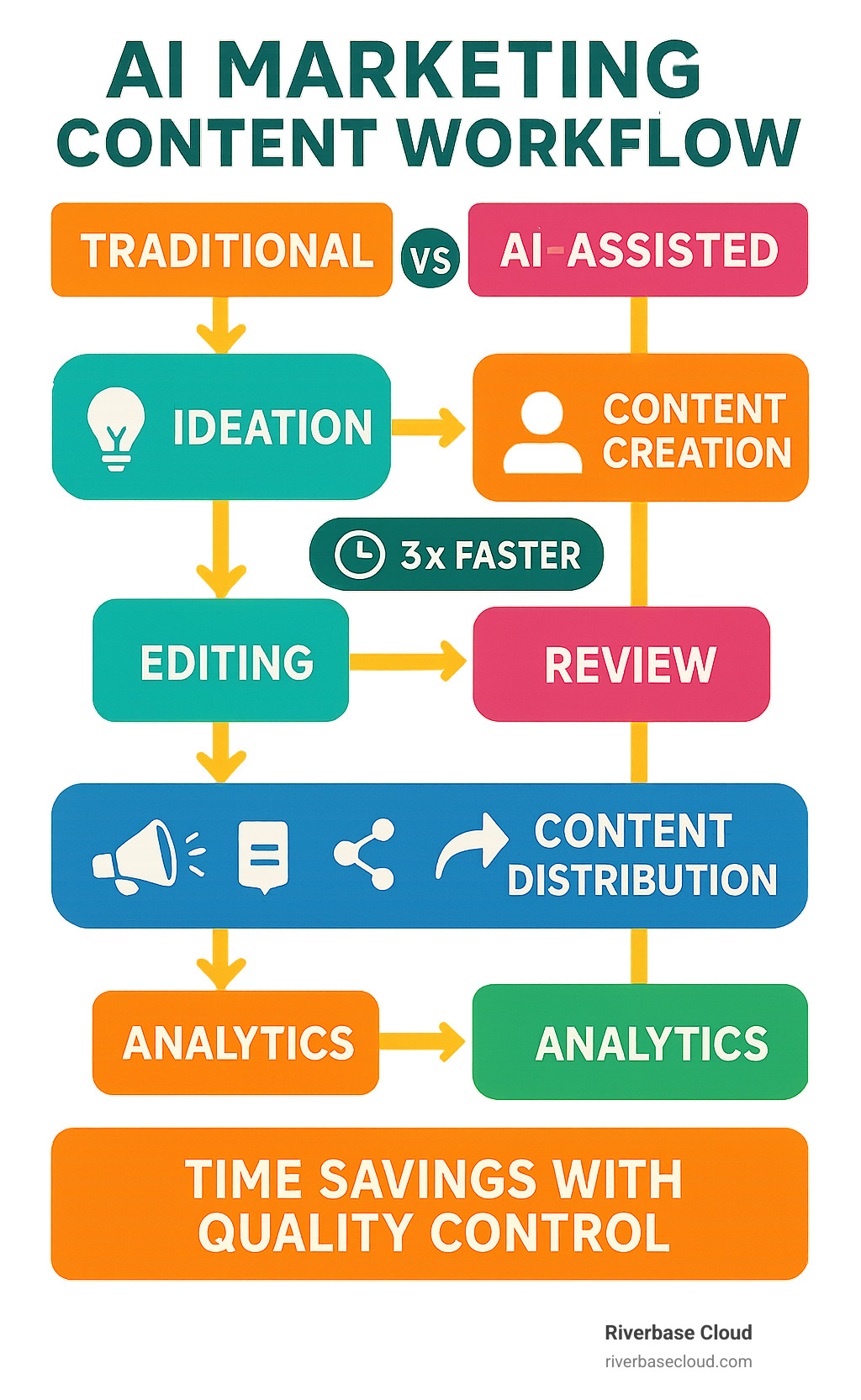
Simple guide to AI marketing content creation:
- AI-driven content strategy
- Managed-AI CONTENT SEO
- digital marketing solutions
What Is AI Marketing Content Creation?
AI marketing content creation is revolutionizing how brands connect with their audiences. At its heart, this technology uses artificial intelligence to help marketers create, optimize, and share content across different channels—all while saving precious time and resources.
Think of it as having a super-smart assistant who's studied billions of pieces of content from across the internet. This assistant—powered by large language models like GPT-4 and Claude—can help you craft everything from blog posts to social media updates that actually sound human.
These AI systems aren't just mindlessly stringing words together. They use natural language processing (NLP) to truly understand context and natural language generation (NLG) to create content that flows naturally and connects with your target audience. The real magic happens when AI analyzes massive amounts of data to spot patterns and trends that can make your content strategy more effective.
What makes modern AI marketing content creation particularly exciting is personalization at scale. Instead of blasting the same generic message to everyone, AI helps tailor content to specific audience segments based on their demographics, behaviors, and past interactions with your brand.
Want to dive deeper into how AI can transform your content strategy? Check out our guide on Opening the Power of AI in Content Strategy.
How AI Marketing Content Creation Works in Practice
In the real world, AI marketing content creation is a team sport between humans and technology. Here's how it typically unfolds:
The process starts with prompt engineering—where marketers provide specific instructions to guide the AI. Think of this as briefing a creative partner. The clearer your instructions, the better your results will be.
Next comes content generation, where AI processes your prompt along with any context you've provided (like brand guidelines or audience information) to create draft content. This is where hours of staring at a blank page transform into minutes of reviewing AI-generated drafts.
Human review and refinement is the critical next step. Real marketers review the AI's work, making edits to ensure accuracy, brand alignment, and that human touch that connects emotionally with readers.
This creates a continuous improvement loop—your feedback helps the AI get better with each iteration, learning your preferences and brand voice over time.
This collaborative approach is becoming the industry standard. Research shows that 75% of marketers now use AI tools in their content creation process, but almost all emphasize that human oversight remains essential. The most successful teams use AI as a partner rather than a replacement for human creativity—letting AI handle the heavy lifting of drafting while humans provide strategic direction and emotional intelligence.
AI Marketing Content Creation Tool Stack
Building your AI marketing content creation toolkit is like assembling a team of specialized experts. Each tool brings unique strengths to different parts of your content process:
For crafting compelling written content, tools like Jasper offer marketing-specific templates, while Copy.ai provides user-friendly interfaces for creating various types of marketing copy. ChatGPT serves as a versatile assistant for brainstorming, drafting, and repurposing content across channels.
Visual content creation gets a boost from tools like Canva AI, which combines design templates with AI image generation capabilities. For custom imagery, DALL-E and Midjourney can create stunning visuals from text descriptions. When you need video content, Synthesia can produce professional-looking videos with virtual presenters—no filming required.
Content optimization becomes more data-driven with tools like Surfer SEO, which analyzes and optimizes your content for search engines. MarketMuse helps with content planning and optimization, while Grammarly ensures your writing is clear, error-free, and on-brand.
For research and trend analysis, tools like Perplexity serve as AI-powered research assistants, Frase helps with content research and optimization, and Brand24 keeps you informed about relevant conversations happening online.
Most successful content teams use multiple tools in combination, creating workflows that might start with ChatGPT for initial drafting, move to Surfer SEO for optimization, and finish with Grammarly for final polishing.
Want to explore more options? Check out this guide to the 12 Best AI content creation tools to find the perfect fit for your specific content needs and technical comfort level.
The 6-Step Framework: From Idea to Publish
Creating amazing content with AI doesn't happen by accident. It takes a thoughtful, structured approach to get from "I need content" to "Wow, this is exactly what we needed!" That's why we've developed this practical 6-step framework for AI marketing content creation that takes you from initial brainstorming all the way through to hitting that publish button.
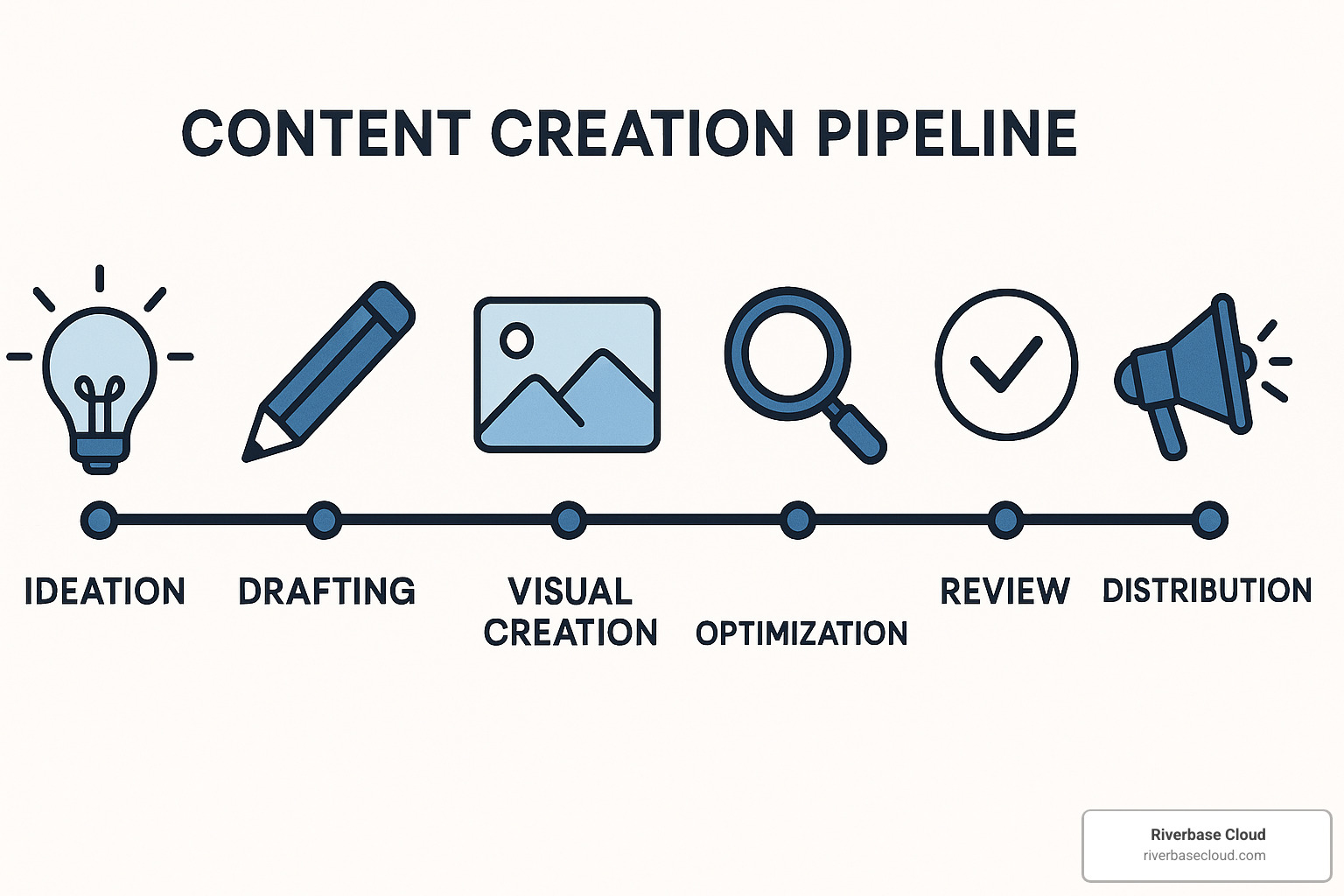
Step 1: Data-Driven Ideation
Coming up with fresh content ideas can be exhausting, right? This is where AI becomes your brainstorming buddy, bringing data-driven insights to your creative process.
Rather than staring at a blank page, you can ask AI to analyze search trends, social conversations, and competitor content to identify what your audience actually wants to read. It's like having a research assistant who never sleeps!
For example, you might prompt your AI tool with: "What questions are people asking about sustainable packaging that we haven't addressed yet?" The AI will dive into the data and surface opportunities you might have missed.
According to Sprout Social, marketing teams using AI for content planning save a whopping 72 hours per quarter. That's three full days you can redirect toward creative execution rather than tedious research.
The magic happens when AI expands your thinking beyond your usual topics. As shown in Content ideation and creativity boost, AI can connect dots between seemingly unrelated topics, helping you find fresh angles that stand out in a crowded content landscape.
Step 2-3: Draft & Optimize with AI
With your brilliant topic in hand, it's time to bring it to life! This is where AI marketing content creation really shines.
Step 2 is all about getting that first draft down. Instead of facing writer's block, you'll create a detailed brief for your AI assistant. Think of it as delegating to a talented team member—the more direction you provide, the better the results.
Tell your AI about your audience, what you want them to do after reading, key points to cover, and your brand's personality. Tools like Jasper, Copy.ai, or ChatGPT will then craft a draft that gives you a solid foundation to work from. The best part? You can generate multiple versions to see which approach resonates most with your message.
Once you have your draft, Step 3 focuses on making it shine for both readers and search engines. AI SEO tools like Surfer SEO become your optimization companions, suggesting relevant keywords and helping you naturally weave them into your content.
These tools analyze top-performing content in your niche and guide your optimization without the guesswork. They'll help with everything from headline improvements to content structure, ensuring your piece has the best chance to rank well.
The combination of AI drafting and optimization can cut your content creation time by up to 75% while actually improving performance. As our article on SEO Evolution: Embracing AI for Better Results explains, properly implemented AI optimization can significantly boost your search visibility.
Step 4-5: Human Editing & Quality Control
This is where the human touch becomes absolutely essential. While AI can generate impressive drafts, your expertise and brand knowledge are irreplaceable for the final polish.
In Step 4, you'll put on your editor hat and ensure the content truly sounds like your brand. Does it capture your unique voice? Are all facts and statistics accurate? Does the narrative flow logically from one point to the next? Most importantly, you'll add those unique insights and personal experiences that only you can provide—the secret sauce that makes your content truly valuable.
Step 5 is your quality assurance checkpoint. Think of it as your content's final exam before it faces the world. You'll verify its originality with tools like Copyscape, ensure it aligns with your brand guidelines, check for any legal compliance issues, and make sure it's accessible to all readers.
| Aspect | AI Responsibility | Human Responsibility |
|---|---|---|
| Grammar & Spelling | Initial correction | Final review |
| Factual Accuracy | Basic information | Verification & correction |
| Brand Voice | Following guidelines | Nuanced application |
| Emotional Appeal | Basic sentiment | Authentic connection |
| Cultural Sensitivity | Standard compliance | Nuanced understanding |
| Legal Compliance | Basic adherence | Complete verification |
This human-AI collaboration is the heart of our Managed-AI CONTENT service at Riverbase Cloud. While AI provides efficiency and data-driven insights, our expert editors ensure every piece meets the highest quality standards while capturing your unique brand voice. As detailed in Quality check: editing services for quality results, this human oversight makes all the difference.
Step 6: Multichannel Repurposing & Measurement
The final step is about making your content work harder for you. After all that effort, why limit your content to just one format or channel?
This is where AI marketing content creation becomes a multiplication tool. That comprehensive blog post can transform into a series of social media snippets, email newsletter segments, video scripts, or eye-catching infographics—all with AI assistance. It's like getting 5x the content for a fraction of the additional effort.
For example, AI can extract the most compelling statistics from your blog post and suggest visually appealing ways to present them on Instagram. Or it can identify the key points that would make perfect bullet points for your email newsletter.
But creating content is only half the battle—you need to know if it's working. Set up tracking for key metrics like traffic, engagement, conversions, and SEO performance. AI tools can help aggregate this data and identify patterns that might not be obvious at first glance.
According to Sprout Social, teams using AI for content repurposing and analytics save an average of 72 hours quarterly on content management and reporting. That's valuable time you can reinvest in strategy and creativity.
For more ways to automate these processes while maintaining quality, check out our guide on Streamline Your Marketing: AI Automation Techniques.
At Riverbase Cloud, we've refined this 6-step framework through hundreds of client projects, finding the perfect balance between AI efficiency and human creativity. The result? Content that performs better, costs less, and actually sounds like you—not a robot.
Benefits & Real-World Wins
AI marketing content creation isn't just a fancy tech trend—it's delivering real, measurable results for businesses of all sizes. Let's look at how companies are winning with AI content strategies in the real world.

Efficiency & Cost Impact
Remember the days when creating content meant blocking off your entire afternoon? Those days are quickly becoming history.
A typical 500-word blog post traditionally takes about 4 hours to complete when done manually. With AI assistance, you can generate that first draft in minutes—leaving you time to focus on strategy and creativity instead of staring at a blank page.
The numbers tell a compelling story. Teams using Jasper have saved more than 3,000 hours annually on content creation. That's like getting back 125 full days! Similarly, Sprout Social users report saving 72 hours per quarter just on content performance reporting.
The financial impact is equally impressive. While outsourcing a 1,500-word article to a freelancer might cost you around $175, AI-assisted content creation can slash those costs by 30-50%. Best of all, you can scale up your content production without the proportional increase in team size or budget.
We've seen this at Riverbase Cloud. One of our small business clients tripled their content output—a 300% increase—without hiring a single additional team member. This allowed them to compete effectively against much larger companies with dedicated content teams.
Personalization & Performance
Beyond just saving time and money, AI helps you create content that actually performs better.
The personalization possibilities are particularly powerful. Instead of creating one-size-fits-all content, AI enables you to generate custom variations for different audience segments. Your website can display dynamic content elements that adapt based on user behavior, and you can deliver consistent personalized experiences across all your channels.
The performance improvements speak for themselves. Companies using Jasper have seen traffic increase by 40% from their AI-assisted blog content. One Albert.ai client achieved a staggering 2,930% increase in monthly leads. And personalized AI-generated email content has boosted open rates by up to 25% for many businesses.
Of course, it's worth noting that AI systems can become biased if not properly monitored. That's why human oversight remains essential—the technology works best when guided by human judgment and creativity.
Brand Success Stories
From global enterprises to local businesses, companies across industries are seeing remarkable results with AI marketing content creation.
Harley Davidson, the iconic motorcycle manufacturer, used AI to analyze customer data and create personalized email campaigns. The result? A 40% increase in qualified leads. Home furnishings giant Wayfair leveraged AI to generate product descriptions at scale while maintaining their distinct brand voice across thousands of items.
But you don't need to be a household name to benefit. A regional healthcare provider we worked with used AI to create educational content across multiple channels, increasing patient engagement by 35%. An e-commerce startup implemented AI-generated product descriptions and watched their conversion rates climb by 28%.
At Riverbase Cloud, we've guided dozens of small and medium-sized businesses through implementing AI content strategies with impressive results. One of our financial services clients increased their organic traffic by 65% in just six months using a blend of AI-generated blog content refined by expert human editors.
Want to see more examples? Check out our guide on Revolutionize Your Strategy with AI Marketing Solutions for additional case studies and implementation strategies.
Challenges, Ethics & Compliance
While AI marketing content creation offers tremendous benefits, it also comes with its fair share of challenges. Let's be honest – no technology is perfect, and AI is no exception. Understanding these problems will help you implement AI more effectively in your marketing strategy.
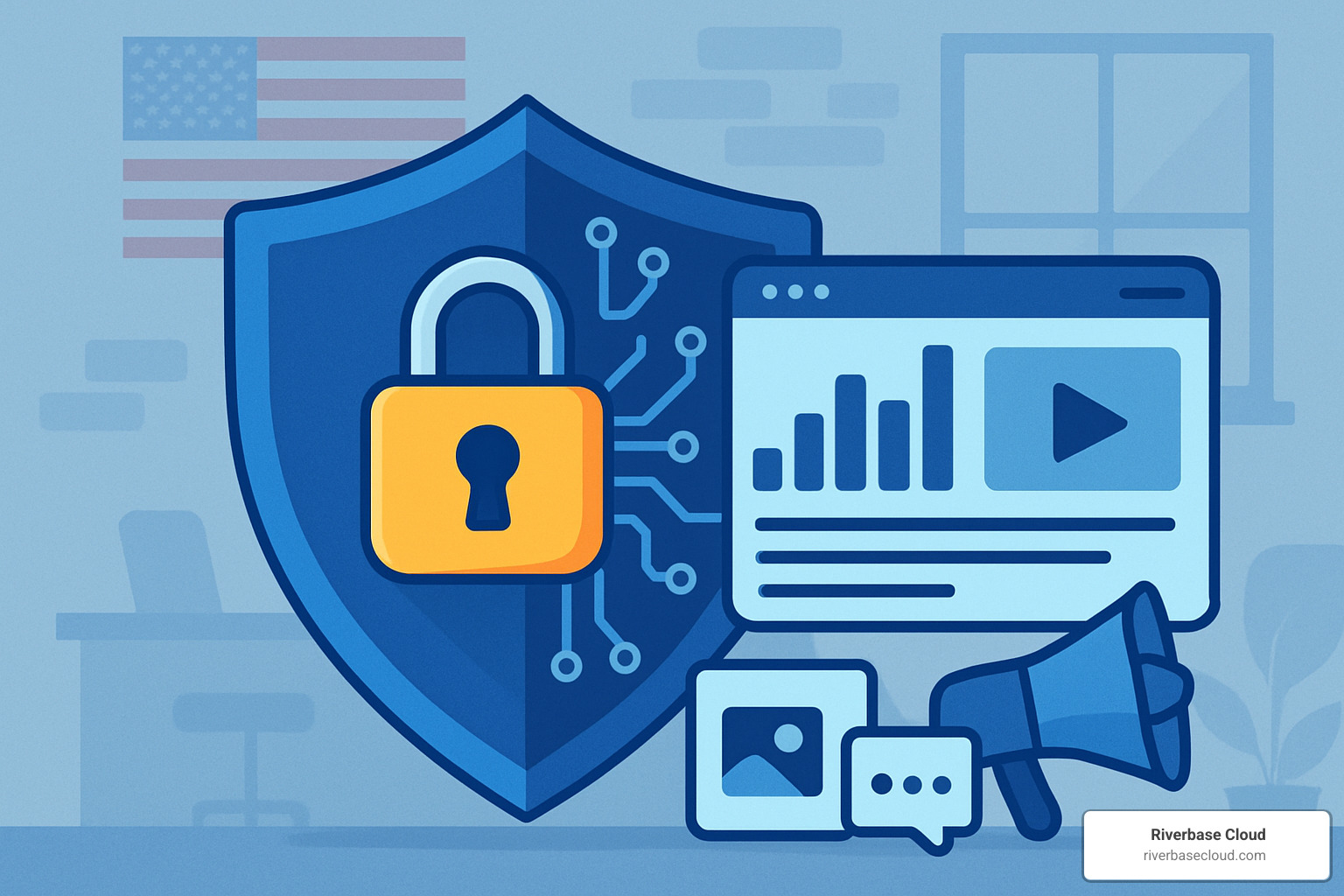
Common Pitfalls in AI Marketing Content Creation
I've seen how excited marketers get about AI – only to run into some unexpected roadblocks. Here are the most common issues you might encounter:
AI has a tendency to "hallucinate" sometimes – that's the industry term for when it confidently presents information that simply isn't true. I once had a client whose AI-generated blog post cited a completely fictional research study! This is why fact-checking remains essential.
Inconsistency can also be a problem. Without careful guidance, AI might write one paragraph in a professional tone and the next like it's texting a friend. Your brand voice needs consistent nurturing, even with AI.
The creativity gap is real too. While AI can follow patterns brilliantly, it sometimes struggles with truly innovative ideas or emotional storytelling that resonates on a human level. It's getting better, but it's not quite there yet.
There's also the growing concern about detection risk. Search engines are developing increasingly sophisticated tools to identify AI-generated content, which could potentially impact your SEO performance if you're not careful about how you implement AI.
Beyond content quality, many teams struggle with implementation challenges. Some become overly reliant on AI, letting it take the wheel completely – which usually results in generic, soulless content. Others find the technical integration daunting or lack the prompt engineering skills needed to get the best results.
The Challenges of AI content creation are significant, but don't worry – they can absolutely be overcome with thoughtful planning and human oversight.
Ensuring Ethics & Compliance
Let's talk about the elephant in the room – the ethical considerations of using AI in your marketing content.
Data privacy has become a major concern for consumers, and rightfully so. AI systems often require access to customer data to function effectively, which means you need to be extra careful about compliance with regulations like GDPR and CCPA. Building transparent data usage policies isn't just about avoiding fines – it's about building trust with your audience.
Being transparent about your AI usage is becoming increasingly important. Consumers appreciate knowing when they're interacting with AI-generated content. This doesn't mean announcing it in every blog post, but it does mean not trying to pass off AI work as purely human-created when it isn't.
Bias mitigation is another crucial consideration. AI systems learn from existing content, which means they can inadvertently perpetuate biases present in their training data. Regular auditing of your AI outputs for potentially biased language or representations is essential for ethical marketing.
And let's not forget about authenticity. Your brand has a unique voice and values that need to shine through, even when AI is helping craft your message. At Riverbase Cloud, we're particularly focused on maintaining this authenticity in all our Managed-AI solutions.
For a deeper dive into these considerations, check out AI and Transparency: A New Era in Marketing.
Balancing AI with Human Creativity
Finding the sweet spot between AI efficiency and human creativity is perhaps the most important challenge in AI marketing content creation. It's not about choosing one or the other – it's about creating a partnership where each brings their strengths to the table.

Humans still excel at strategic direction – defining content goals, understanding audience needs, and developing the overall strategy. We bring emotional intelligence that helps create content that genuinely resonates and builds authentic connections with readers. We understand cultural nuance in a way AI simply can't yet, picking up on subtle references and sensitivities that might fly over an AI's head.
Perhaps most importantly, humans serve as brand guardians, ensuring that every piece of content aligns with your brand voice, values, and positioning. No matter how good AI gets, it will never understand your brand the way you do.
The most successful AI implementations I've seen treat AI as an assistant rather than a replacement. Let AI handle the heavy lifting of research and initial drafting, while humans make the final decisions and add that special creative touch that turns good content into great content.
This is exactly the approach we take at Riverbase Cloud. Our AI marketing content creation process leverages the speed and efficiency of AI while ensuring every piece of content receives the human touch it needs to truly shine. It's not about replacing humans – it's about freeing them to focus on the creative and strategic work that drives real results.
Future Outlook: Preparing Your Team
The landscape of AI marketing content creation continues to evolve rapidly. Preparing your team for future developments is essential for maintaining competitive advantage.
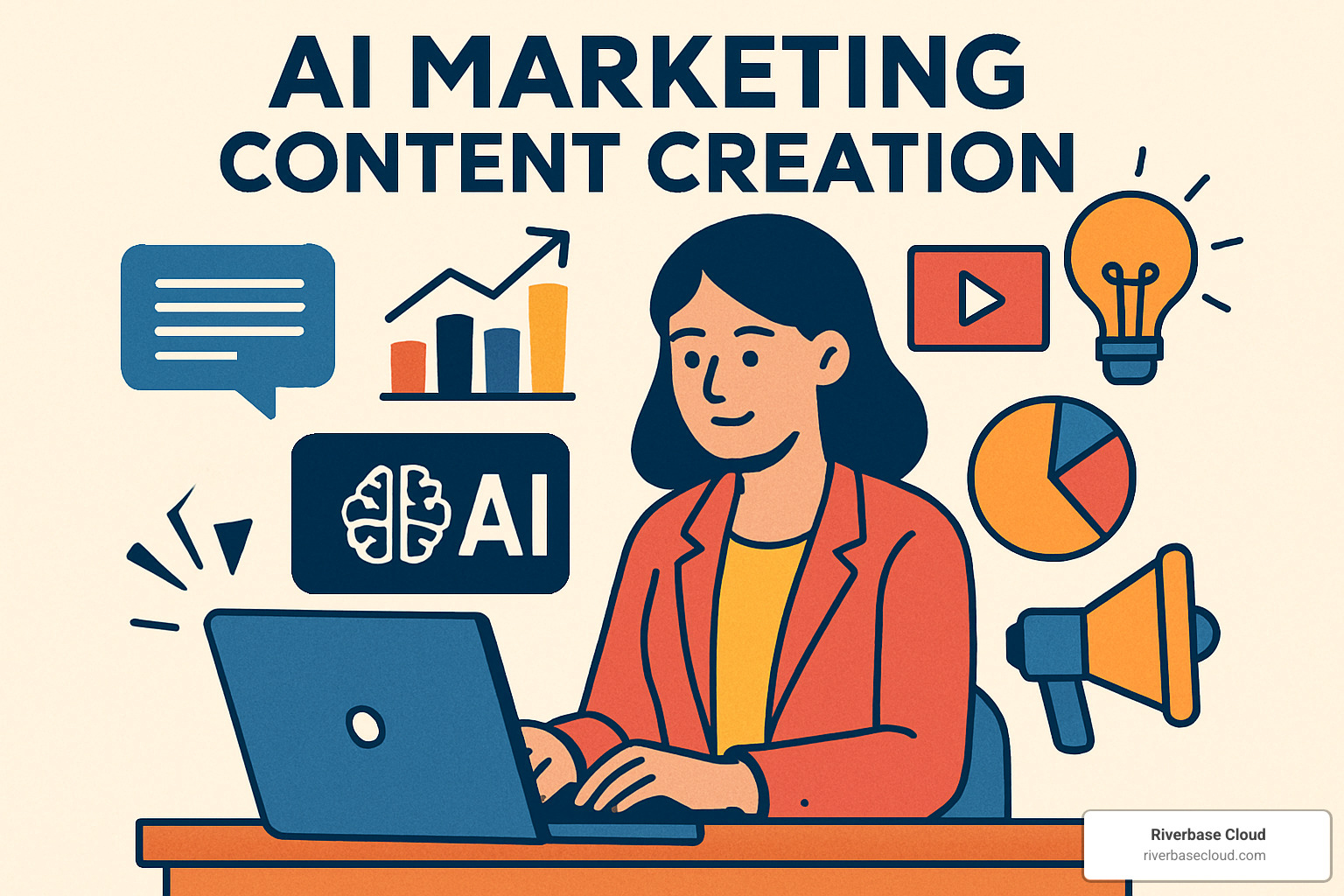
Skills & Workflow Evolution
As AI becomes more deeply woven into our marketing fabric, the skills that drive success are shifting in fascinating ways. Gone are the days when technical writing and design skills alone could carry your content strategy. Today's marketing teams need a blend of technical savvy and creative thinking that bridges the human-AI divide.
Prompt engineering has emerged as perhaps the most valuable new skill in a marketer's toolkit. Think of it as the art of speaking AI's language – knowing exactly how to frame requests to get the results you want. I've seen teams struggle for weeks with AI tools before realizing that the magic wasn't in the technology but in how they communicated with it.
Data analysis skills have taken on new importance too. When AI serves up insights and recommendations, your team needs the ability to separate signal from noise – understanding which AI-generated ideas align with your brand and which miss the mark.
The most successful teams are developing what I call strategic curation skills – the ability to quickly assess AI outputs, identify the gems, and shape them into something truly valuable. This human touch transforms good content into great content.
Perhaps most importantly, as AI handles more tactical execution, your team can focus on higher-level strategic thinking. What stories should we tell? How do we connect emotionally with our audience? These uniquely human questions become your team's primary focus.
At Riverbase Cloud, we've helped dozens of marketing teams develop these skills through hands-on training and collaborative projects. The learning curve can be steep, but the payoff is tremendous.
Boost Your Campaigns with AI-Powered Google Ads offers practical insights on applying these evolving skills to your paid advertising efforts.
Tech Stack Integration & Scalability
Building a content ecosystem where AI tools work seamlessly with your existing marketing technology isn't just a nice-to-have – it's essential for sustainable growth. The days of disconnected point solutions are behind us.
The most forward-thinking companies are creating flexible, integrated systems using API connections that allow their AI content tools to communicate directly with their content management systems. This eliminates the copy-paste dance that slows down so many marketing teams.
Workflow automation tools like Zapier and Gumloop are becoming the connective tissue of modern marketing departments. They ensure that when AI creates a piece of content, it flows automatically to the right channels without manual intervention. One of our clients reduced their content publication time by 65% simply by connecting these dots.
I'm particularly excited about the emergence of LLM-agnostic frameworks – platforms that can work with multiple AI models. This approach gives you flexibility to switch between different AI technologies as they evolve, without rebuilding your entire workflow.
Scalability is where many AI content strategies fall short. Systems that work beautifully for a dozen blog posts often break down when you need hundreds. The most effective AI marketing content creation systems are designed with growth in mind from day one – considering not just today's content needs but tomorrow's expanded channels and increased volume.
When we build AI content systems at Riverbase Cloud, we always start with the end in mind. How will this system handle 10x the content volume? What happens when we add new distribution channels? This forward-thinking approach prevents painful rebuilds down the road.
Everything You Need to Know About AI-Powered SaaS Ads Tools dives deeper into the integration considerations for advertising technology.
Frequently Asked Questions about AI Marketing Content Creation
What content can AI create without compromising quality?
When clients ask me this question, I always tell them that AI marketing content creation truly shines with certain content types.
AI does an impressive job with structured content like product descriptions, event announcements, and straightforward news updates. The technology excels at organizing facts and presenting them clearly. It's also remarkably good at handling data-driven content—think financial reports, analytics summaries, and performance recaps where precision matters.
One of my favorite AI applications is creating variations of existing content. Need your core message adapted for Instagram, LinkedIn, and email? AI can help you maintain consistency while tailoring for each platform. And for longer content pieces, AI-generated first drafts can give you a solid foundation to build upon.
That said, I've learned through experience that content requiring deep emotional connection, original thought leadership, or complex storytelling still benefits from a significant human touch. At Riverbase Cloud, even with straightforward content types, we've found that a quick human review dramatically improves quality while preserving those efficiency gains that make AI so valuable.
How do I ensure AI-generated content ranks well in search engines?
Making AI-generated content rank well isn't magic—it follows the same principles as any quality content strategy, with a few important nuances.
First and foremost, focus on quality. Google doesn't care who (or what) wrote your content—it cares whether that content provides genuine value to readers. Human editing is non-negotiable here; reviewing and refining AI outputs adds depth and originality that pure AI content might lack.
Strategic optimization matters too. We use tools like Surfer SEO to improve our AI-generated content without over-optimizing. Technical SEO fundamentals still apply—proper formatting, comprehensive metadata, and solid site structure remain crucial. And don't forget to regularly update your AI-generated content with fresh information to maintain relevance.
Our experience at Riverbase Cloud shows that AI-generated content typically takes 2-3 months to rank in search results—pretty much identical to human-created content—provided it meets quality standards. Our Managed-AI CONTENT service combines AI efficiency with expert SEO knowledge to create content that performs well while maintaining that authentic voice that readers (and Google) appreciate.
Will AI replace human marketers or simply augment them?
I smile whenever I hear this question because the answer becomes clearer every day: AI will augment human marketers rather than replace them.
What we're seeing is a shift in roles, not elimination. As AI marketing content creation handles more routine tasks, marketers are focusing more on strategy and creativity—the areas where humans truly excel. There's a beautiful transition happening from volume to value; instead of creating more content, marketers ensure higher-quality, more effective content.
Marketers are becoming directors and editors of AI-generated content rather than primary creators. We're also seeing interesting specialization emerging around AI prompt engineering and oversight—skills that didn't even exist a few years ago.
In my conversations with clients, I emphasize that the most successful marketers will be those who learn to collaborate effectively with AI. The winning approach leverages AI's strengths—speed, scale, data processing—while applying uniquely human skills like empathy, creativity, and strategic thinking.
This balanced human-AI partnership is exactly what we've built our services around at Riverbase Cloud. We've seen how this collaborative approach delivers better results than either humans or AI could achieve alone.
Conclusion
AI marketing content creation isn't just another marketing buzzword—it's a genuine game-changer that's reshaping how businesses connect with their audiences. Throughout this guide, we've walked through a practical 6-step framework that balances cutting-edge technology with the irreplaceable human touch that makes content resonate.
The beauty of this approach isn't about replacing human creativity—it's about enhancing it. Think of AI as your tireless assistant, handling the heavy lifting of research, drafting, and scaling, while you focus on the strategic thinking and emotional intelligence that no algorithm can replicate.
I've seen at Riverbase Cloud how this balanced approach transforms content operations for businesses of all sizes. Our clients often start skeptical but become believers when they see how our Managed-AI solutions blend automation with expert human oversight to deliver content that actually performs.
What makes this approach work is its flexibility. Some days you might lean heavily on AI for rapid content generation across multiple channels. Other days, you might take a more hands-on approach for that high-stakes thought leadership piece. There's no one-size-fits-all formula—and that's exactly the point.
The most successful content strategies moving forward won't be purely AI or purely human—they'll thoughtfully combine both. This hybrid approach allows even small marketing teams to create more engaging content at scale, driving better results without sacrificing authenticity or brand voice.
Ready to see what AI-powered content can do for your business? Our Content & SEO services at Riverbase Cloud can help you implement these strategies with expert guidance, clear results, and zero long-term commitments. We believe in earning your business every month, which is why we keep things transparent and commitment-free—cancel anytime without hassle.
The future of content marketing is here, and it combines the best of human creativity with AI efficiency. Why not explore what it could mean for your business?
